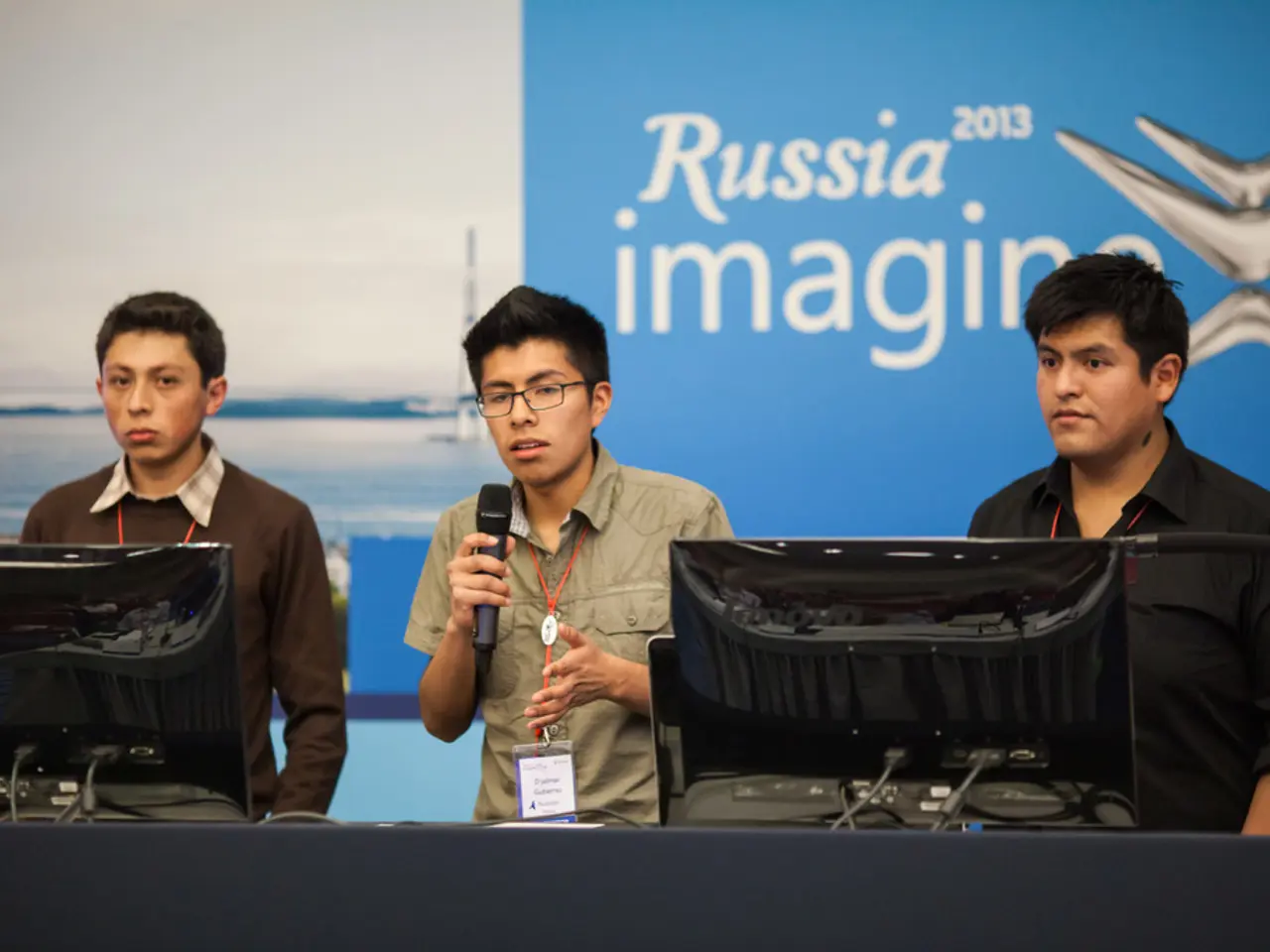Foreign messaging services face partial restrictions in Russia
Russia Imposes Partial Restrictions on Foreign Messaging Apps
Russia has imposed partial restrictions on voice and video calls made through popular messaging apps such as WhatsApp and Telegram, causing disruptions since early August 2025. The state communications regulator, Roskomnadzor, announced the measures as a step to combat fraud, extortion, and terrorism.
The decision to limit voice calls in foreign messengers is aimed at reducing fraudulent calls, according to Roskomnadzor. However, the report does not specify the extent of the restrictions. The other functions of these messaging apps remain unaffected.
Meanwhile, Russia is promoting its Kremlin-backed domestic messaging app, Max, which will be pre-installed on all new phones and tablets sold in the country starting September 1, 2025. This move is seen as an effort to shift users away from Western platforms toward a state-controlled digital ecosystem.
Max offers messaging, video calls, mobile payments, and state services. Critics warn it may act as a surveillance tool, collecting extensive personal and financial data accessible to security services.
The Ministry of Digital Development, Communications and Mass Media of the Russian Federation has stated that the companies behind Telegram and WhatsApp, Meta, have been recognized as extremist and are banned in Russia. Meta, the owner of WhatsApp, is among the foreign messengers affected by the restrictions.
Russia's digital control and surveillance policy is not limited to these messaging apps. After Putin’s 2025 decree to “strangle” foreign digital services, Russia also targets platforms like Google Meet and is imposing mandatory domestic app stores and state TV apps pre-installed on devices.
It is unclear what the consequences of non-compliance with Russian legislation by foreign messengers will be. The report does not specify the extent of the impact of the restrictions on fraudulent calls or the consequences of the restrictions.
In summary, Russia has imposed partial restrictions on voice calls in foreign messaging apps such as WhatsApp and Telegram while pushing use of its state-backed messenger Max, reflecting a broader policy of digital control and surveillance.
- The restrictions on foreign messaging apps like WhatsApp and Telegram, imposed by Russia due to concerns about fraud, extortion, and terrorism, are part of a broader policy-and-legislation plan in the realm of politics.
- As Russia intensifies its digital control and surveillance policy, the news about the partial restrictions on voice and video calls made through popular messaging apps like WhatsApp and Telegram is a general-news development, coinciding with the promotion of their Kremlin-backed domestic messaging app, Max.







